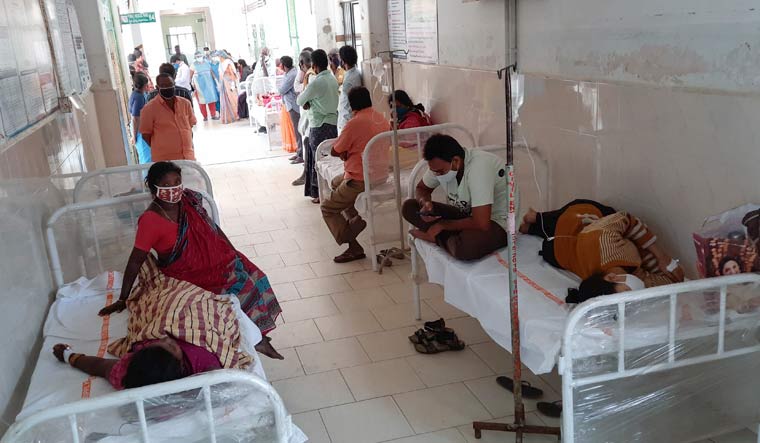Lead and nickel in blood, mercury in rice, pesticides and herbicides in vegetables were found in more than permissible limits, triggering the outbreak of the mysterious disease in Eluru city of Andhra Pradesh, different analytical reports said on Friday.
Just four fresh cases of the disease were reported on Friday, taking the cumulative to 613, but only 13 of them were active now.
A report submitted to the government by the All India Institute of Medical Sciences and Indian Institute of Chemical Technology established the presence of lead and nickel in blood (of the victims), but nothing in drinking water.
An analysis by scientists at the National Institute of Nutrition found traces of mercury in rice and pesticides and herbicide residues in excess quantities in vegetables.
The NIN also found out that residues of organophosphorous in blood, but said it has to be studied how they entered the humans.
A study of ambient air quality and water, conducted by the Andhra Pradesh Pollution Control Board, revealed no presence of heavy metal in water.
The Institute of Preventive Medicine, in its analysis, found no heavy metal in milk.
Reports related to the analysis of meat and fish were yet to come, according to state Health Commissioner Katamaneni Bhaskar.
But most of the people did not consume non-vegetarian food in recent days due to the festive season, he said.
"What exactly caused the disease is not clear yet and it can be established only after detailed reports of the tests come out," Bhaskar said.
Chief Minister Y.S. Jagan Mohan Reddy held another round of video conference with experts from the Central research institutions on Friday evening, who told him that the drinking water supplied in Eluru was clean.
However, the chief minister asked them to test drinking water samples repeatedly and ensure nothing was amiss.
He asked them to precisely trace out how lead, nickel, organochlorine and organophosphorous entered humans.
The chief minister said indiscriminate use of pesticides and unauthorised insecticides should be stopped and wanted the officials concerned to focus on it.
"Take this programme up for a month. Educate farmers on organic farming and use of permitted pesticides. This way we can prevent contamination of food items,” he said.
Meanwhile, the state government constituted a 21-member multi-disciplinary committee, headed by Chief Secretary Nilam Sawhney, to probe the source of the infection thoroughly, examine the causes and suggest remedial measures to prevent occurrence of such events in future.
The government directed the committee to submit a comprehensive report with a detailed action plan immediately to avert such incidences in future.







